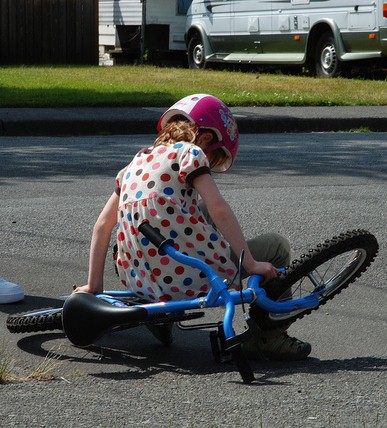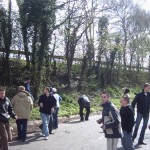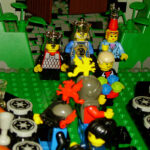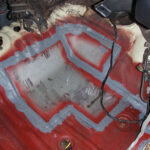To be intelligent is to be open-minded, active, memoried, and persistently experimental. – Leopold Stein and here
What does that mean?
To achieve this person’s definition of intelligence (presumably translated from German, which appears to be his native language) you have to have a certain set of qualities. To me, they have meanings, within certain allowances for translation of time and language.
Open minded means to be willing to consider other possibilities, other view points, other explanations and other ways of approaching problems.
Active means being the opposite of passive, to go out and look for information instead of sitting around waiting for it to come to you.
Memorized, to me, is probably a translation issue, meaning to have memorized information, to know things well and thoroughly.
Persistently experimental means to constantly try, even if it didn’t work the last 99 times, let’s try again, with this changed a little bit and see what happens.
How does that look to you, are the definitions about what you expected? What other components would you ascribe to intelligence?
Why is being intelligent important?
Well, it beats the alternative, I guess. But seriously. Being intelligent isn’t the same as being the nerd that everyone throws stuff at, nor is it having to be the brightest person in the room (worse yet, feeling a need to attempt to prove that you’re the brightest person).
To me, being intelligent is more about being able to help others, to give them the benefit of your experience. It is also about being curious about why things work, how they break and how to fix them again. It’s about wondering why something does what it does, behaves the way it behaves and trying to get to the bottom of it.
But in the end, what good is knowledge if you don’t put it to use, what good is knowledge if it is locked up in your head, unavailable to those who could benefit from it?
Where can I apply this in my life?
Taking each in order, being open minded would be the first to consider. Please note that there is a difference between being open to the consideration of new ideas and approaches and simply adopting something new simply because it is new.
Being open minded includes using your past knowledge and experience to examine the usefulness of a new idea or approach. It includes declining to adopt something new as easily as it includes accepting something new. The idea or approach must stand on it’s own and hold some usefulness or value.
Next would be being active. To me, that means you must go out and seek out information, knowledge, techniques and whatever else is part of your knowledge base. If you are a mason, you would want to keep up with the latest in improvements in mortar (really, the chemistry is fascinating, as are the additives). If you just wait until a competitor takes a contract you needed to keep the business going, that would not be being active and would hurt your business.
If your job is something other than masonry, you still need to keep up. Many professions require (yes, require) professional development as a condition of employment or even to retain your license to practice. Many in the medical field fall into this category. Nobody wants to be treated with last year’s medicine, not at the rate that things are progressing!
This also applies to your hobbies and your home life. Just keeping up with what your kids are doing and what is fashionable is a very active learning experience. You don’t want to be the parent the kids laugh about when you give your daughter a shirt that is just “oh-so-last-year!”, do you?
The next is memoried, which I converted to having memorized information available. You want your cab driver to know how to get to your destination, not have them guessing which way to turn at each corner. You want the pest control people to take one look at the bug in the container and tell you they can handle that critter, not scratch body parts and look it up on the internet.
At work or at home, it is also useful to have things memorized. Class schedules, after-school programs, emergency phone numbers (that goes for the kids as well), and so much more. Memorizing the recipes to my kid’s favorite meals was modestly difficult, but I can now cook them when my wife is unavailable for cooking duty. If your garage doubles as a work shop, you probably know which bolts on the engine use the 1/2″ open end and which ones need a socket. You probably can tell the difference between a 12 penny and 16 penny nail at just a glance. It won’t win you any prizes, but it’s part of being an intelligent worker, right?
The last of the traits listed as part of being intelligent is being persistently experimental. And you need to be both halves of that, both persistent as well as experimental. This is another way of saying you can’t give up, you have to keep trying. It also says you have to keep trying different ways, as doing the same thing over again and expecting different results is… a different quote (look it up if you like).
Not every thought we have leads straight to a brilliant conclusion. We have to keep after it, tying new things, changing it up, until we can get to the conclusion. I’m not sure how to give you hints on being persistent other than to say keep going, don’t let up. Take a break from time to time, yes. Use that time to get some more information (being active), search your memory banks for other clues (memorized), and consider new or different approaches (open-minded).
In other words, to be intelligent, you need to be intelligent about how you try to do everything. But, if you look carefully at your life, you already have dozens if not hundreds of tasks where you have done this already. Do you brush your teeth the same way as when you were a kid? How about shaving, is that the same as even a few years ago? As the technology has changed, so have the tools and the method of applying them.
You are already intelligent, all you need to do now is make it part of your daily routine and apply it to all that you do. Sounds hard, but so did tying shoes or riding a bicycle. Each of those tasks required an open mind (for new ideas on how to do it), you had to be active (both in the thought process and the physical activity) and you had to be persistently experimental (since the last 20 times didn’t end very well). You ended up gaining knowledge and becoming more intelligent.
You can do it, and I certainly think it’s worth the effort. And be sure to share, there are plenty of people out there who could use your help!
From: Twitter, @Quoteshall and @pamlawhorne
confirmed at : http://www.legendinc.com/Pages/ArchivesCentral/QuoteArchives/Knowledge.html about 1/3 of the way down.
Photo by goat_girl_photos







